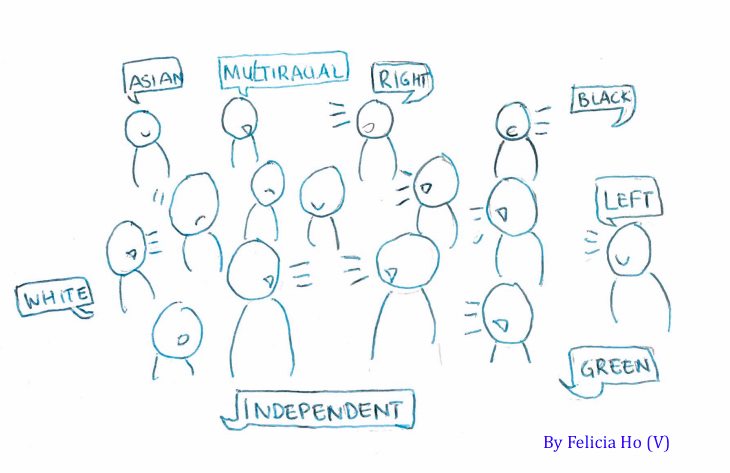
Oct 24, 2017 | Opinion
By Miro Bergam (V)
“Lean into discomfort.” This phrase may sound familiar from the multiple diversity assemblies you’ve been asked to attend in your years at Pingry. It is a part of a list of “conversation norms” that Pingry’s diversity work is grounded in. For many people, this phrase and the list of norms have gone in one ear and out the other. However, I have found that recently, the world that surrounds us has given these norms more context. In particular, I believe the political conversations our country is currently engaging in and the way they translate tangibly into our interpersonal relationships and lives at Pingry has made the norm of leaning into discomfort a necessity.
I had this realization at a leadership workshop hosted by Pingry’s diversity department this past August. Student leaders from sports teams, clubs, Student Government, SDLC, and Honor Board were asked to attend this training session, which involved engaging in different activities led by John Gentile, a diversity practitioner who specializes in working with white males.
In the latter half of the activity, the white males at the workshop were isolated into their own group. For the first few minutes, the group was dead silent. The silence was killing the whole intention of holding such a group: everyone was supposed to lean into discomfort and air out the white male opinions that are often overlooked in diversity work. But once people started participating, lightning struck the room: it was uncomfortable, it was problematic, and heads were clashing, but it was exactly what we needed. Everyone leaned a little bit out of their comfort zones, and it unearthed a landmine of opinions we desperately needed to addressed and confront in our world of white supremacist marches and national anthem debates.
Last week, Mr. Conard delivered a much needed speech addressing these conflicts. He shared his own opinion denouncing the white supremacists who marched in Charlottesville, and he commented on the way our current atmosphere politicizes every aspect of our lives, even including our day-to-day conversations.
One of his main points was that although he finds the white supremacists’ stances abhorrent, he believes “they have a right to voice their opinions.” This may strike some people as the opposite of what we should be doing—if their opinions are “wrong,” then why should we even give them a platform? Along the lines of Mr. Conard’s statement, I argue that continuing to push these repulsive opinions under the radar is simply feeding a large, silent beast of discontent and frustration that is occasionally released in horrifying moments like the white supremacist rallies that have swept Charlottesville.
Through hearing out the opinions of Pingry’s white males at the leadership workshop this summer and listening to dissenting opinions as a leader of the white affinity group, I have learned that the endgame is not always about coming to an agreement, changing someone’s mind, or “winning” the argument. All it takes is a dialogue and platform that respects both sides, regardless of how ugly each person thinks the other’s opinions are, to begin chipping away at the massive divide that seems to have polarized our country and school recently. Simply honoring someone’s opinion by hearing it out, regardless of whether or not you agree with it, builds a sense of mutual respect.
The key to this is leaning into discomfort. If you have a far left opinion that you think no one will take seriously, lean into discomfort and voice it. If you have a far right opinion that you feel has no place at Pingry, step out of your comfort zone and let it be known. I believe Mr. Conard did an amazing job of stepping out of his comfort zone to address the school on such a contentious issue—setting an example we should be seeing more often from our school’s leadership in such divided times.
I urge you to follow his lead: join the open forums, attend affinity groups, and engage in difficult conversations. As long as you hold these dialogues in a productive way, without the goal of “winning” over or “beating” others, then you should find spaces to voice your opinion and lean all the way into discomfort. In Mr. Conard’s words, “I encourage you to engage in respectful dialogue about these issues—they are not going to go away.”
Oct 24, 2017 | Opinion
By Rachel Chen
I used to believe that if I didn’t read the end of a book, it never ended. Like if I didn’t finish Harry Potter and the Order of the Phoenix or Mockingjay, Sirius and Rue would go on existing perpetually, even aging and dying naturally. (Spoiler alert!) The characters would find a way out, and somehow everyone would live happily ever after. Or at least, you know, live.
That’s a bit like how I feel right now, at the start of my senior year. In the books of our high school lives, we’re hovering right on the precipice of the grand finale. There’s so much anxiety and suspense in the air, but there’s also this great sense of potential and excitement for the ending—it’s a rollercoaster ride and I don’t know if I’m screaming out of fear or exhilaration.
Because the thing is, I’m not scared of what I’ll find at the bottom. I know my friends and family will be there to catch me and cheer, just like I know every single one of us will go on to be happy, do great things, and change the world. It’s not the fear that gets me, but the anticipation. Where will I find myself when I open my eyes and catch my breath?
I honestly have no idea.
All I know is that our stories are shaped by the relationships we’ve formed, the roles we play, and the duties we owe. Every failed side quest and hilarious mishap has pushed us along; every Forbidden Forest explored and boss battle conquered has moved our character development and story arch. All this rising action leads up to an inevitable conclusion—and once we know that conclusion, we can never change it again. And that terrifies me. What if I close this chapter of my life regretting that I didn’t finish strong?
So I guess what I’ve realized is that now is a good time to evaluate the narrative I’ve written at Pingry and decide how I want it to end. Fortunately, it’s not yet set in stone. My fellow seniors and I are still writing; we still have a say in how our Pingry adventures wrap up. It’s not too late to change some storylines—to fix that friendship you lost in Chapter Five, say, or to tie up the loose ends from that misplaced romantic subplot. Certainly, it’s time to call upon that powerful wizard ally for advice and support. God only knows that we need all the help we can get in these next few months.
To my underclassmen too, all of you familiar faces I love and unfamiliar faces I can’t wait to meet: Now is the time to write. Write the story you want to read, the adventure you want to tell. Commit yourself to being the best and bravest version of yourself now, because all your sweat and tears add up. You will thank yourself for it later.
Now my question to you is: How do you want your story to end? And what are you going to do about it?
There will come a moment when we’ve all finished our journeys. We’ll turn the final page, close the cover, and mull over the endings we discovered. We’ll either set it on the shelf or burn it, depending on how you feel about your narrative. But either way we can’t go back to reread it, to experience it again for the first time.
That moment will inevitably arrive—after all, despite my denial, Sirius and Rue still die in their respective books—so let’s focus on the present, while we still hold the pen in our hands. Let’s write our stories as they’re being told. Let’s change the endings while we still can.
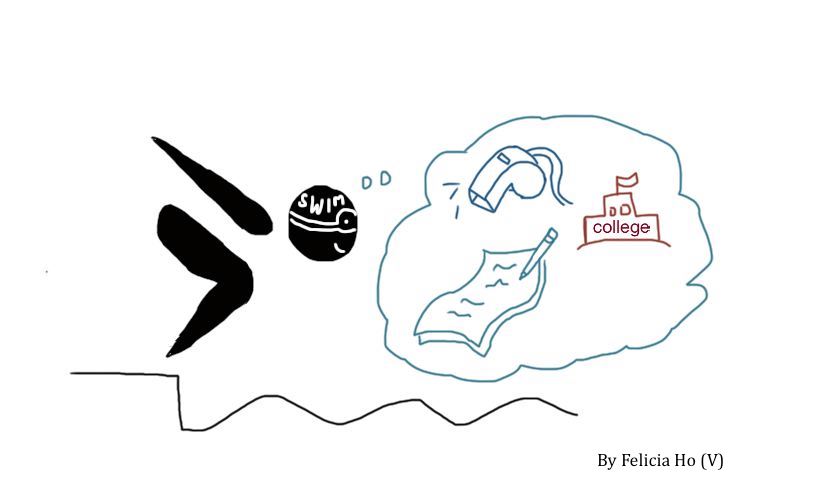
Oct 24, 2017 | Opinion
By Darlene Fung (V)
I still remember my first day of swimming lessons. Six-year-old me was splashing around, when my instructor clapped his hands and announced, “All right, you’re going to put your head in the water now!” I looked up at him through my oversized purple goggles and immediately shook my head. There was no way I was getting my face wet. The water was scary: there was so much unknown under there and, most importantly, there was no air. “Come on, just put your head under,” he said again. “One, two, thr— ,” and before I knew what was happening, a large hand dunked my face into the water. Needless to say, I came back up sputtering and crying.
Now, ten years later, I’m experiencing the same feeling I felt on my first day of swim lessons with the college recruiting process. Similar to that day, I am nervous, uncertain, and feel as if I have been tossed into something before I am ready.
Starting September 1, 2017, college coaches were officially allowed to begin recruiting swimmers in the class of 2019, relatively late compared to sports such as lacrosse and softball in which athletes may be recruited as early as middle school. Yet I still felt as if this whole process is starting way too early. After all, I’ve barely even started junior year, let alone taken the required standardized tests. It made me realize that while being able to commit early seems like a great opportunity, there are shortcomings to the system that should not be overlooked.
For those athletes who are recruited early and can commit to their dream school, their hard work has finally paid off and it appears to be smooth sailing ahead. However, a great deal can change in a few years. For instance, coaches may move to different schools so that by the time an athlete gets on campus, he or she may face a new coach and an unexpected training program. The team atmosphere may also be different by the time an athlete attends a college, because the players with whom the athlete met when he committed will be different than the teammates with whom he will play. Finally, the athlete himself or herself may change. What was the perfect school when an athlete committed may no longer be perfect as the athlete grows and his interests change. When asked about her recruiting experience, softball player Angelina Mayers (V) said, “I’ve waited to commit because you never know what may happen in the future. I had my heart set on one school in the past, but now I’m very interested in other schools.”
More importantly, early recruiting puts unwarranted stress on young athletes. In order to be recruited early and land a commitment to a top school, young athletes oftentimes put a lot of pressure on themselves to constantly perform well in front of college coaches. Mayers continued, “I am away almost every weekend either for a tournament or at a camp that a college coach asked me to go to.” Furthermore, those athletes who are working hard but are not offered commits feel added pressure to practice even harder to get coaches to notice them. This cycle risks overtraining and injury.
To young athletes who feel the pressures of early recruiting: Relax. Make sure you don’t get caught up in the frenzy. Take your time to explore your passions, do what you love, and get to know yourself, so you are ready to make the best decision for yourself when the time comes. At Pingry, we are lucky to have understanding and experienced advisors, college counselors, and coaches to guide us through the college process and help us make these important choices. With help, preparation, and knowledge of ourselves and what we hope to get out of the college experience, I think no athlete should have any trouble diving headfirst into the water.
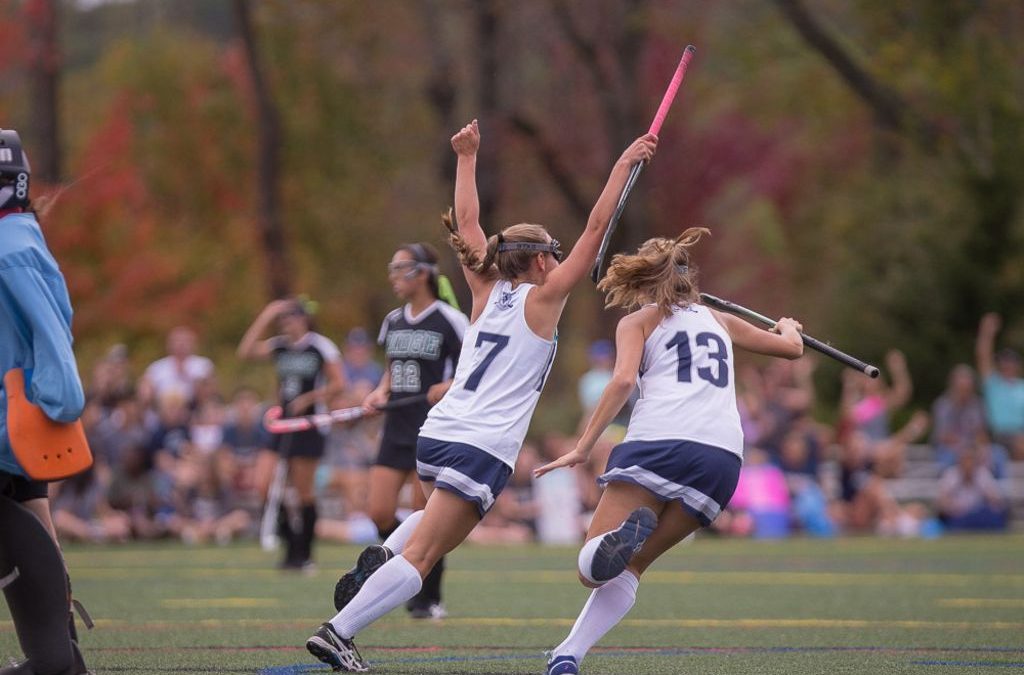
Oct 24, 2017 | School News
By Allie Verdesca (VI)
On a beautiful, hot Saturday in early October, Pingry hosted its annual Back-to-School Day and Homecoming. Just over 900 parents arrived promptly at 8:15 AM, prepared to experience a day in the life of their children’s schedule and a chance to say hello to their teachers. After a morning full of interesting discussions and back-to-school memories, the Homecoming events began in earnest. The focus this year was Pingry sports, celebrating the school’s beautiful new athletic spaces, including the football team’s new stadium and turf field.
A group of 700 students, parents, and Pingry alumni attended the festivities. Lunch was a bountiful barbeque, featuring hamburgers, hot dogs, grilled vegetables, and a table of delicious desserts, all made possible by the dedicated men and women from Sage Dining. Sporting events went on throughout the day, including water polo, boys’ and girls’ soccer, football, and field hockey. Visiting alumni could also participate in either a field hockey or a soccer game.
Pingry’s teams played well, especially boys’ soccer, beating its archrivals Holmdel with a nail-biting victory of 1-0. Captain Vineil Reddy (VI) accredited the win to a pre-game session by mental performance coach and psychology teacher Dr. Fisher and some Pingry soccer alumni, who encouraged the team to “focus on controlling the ‘controllables’” of the game. Reddy acknowledges the importance of this game to the morale of the soccer team, coming into the game with an overall record of 6-3-1. He believes that “this was the first game in which every single member of the team was completely focused.”
The soccer team was not the only one flaunting a victory. The field hockey team also won its game against Ridge, 5-2, with the help of junior Josie Jahng, who scored two goals and had one assist. The water polo team notched a strong win against Lawrenceville 10-7. However, the girls’ soccer team suffered a close defeat, losing 2-1 in overtime against Bernards. The football team also lost a high-scoring heartbreaker, 49-48, against Fieldston, with Obi Nnaeto (VI) scoring four touchdowns.
Both the Balladeers and the Buttondowns made their musical debuts for the year, singing “The Star-Spangled Banner” and “Old John Pingry” before the athletic competitions that day. While the games were occurring, children enjoyed games and face painting, and all attendees received free t-shirts.
After the athletic festivities were over, student council held its annual Homecoming dance themed “Under the Sea,” an evening full of music and friends. Senior Sehyr Khan says she “enjoyed all the fun outfits with her peers.” The dance was not only a rousing success but also a great way to raise money for the student council, and it marked the end of a pride-filled spirit week, complete with a pep-rally and themed dress down days throughout to keep spirits high. Overall, this year’s Homecoming was a great day to celebrate Pingry pride.
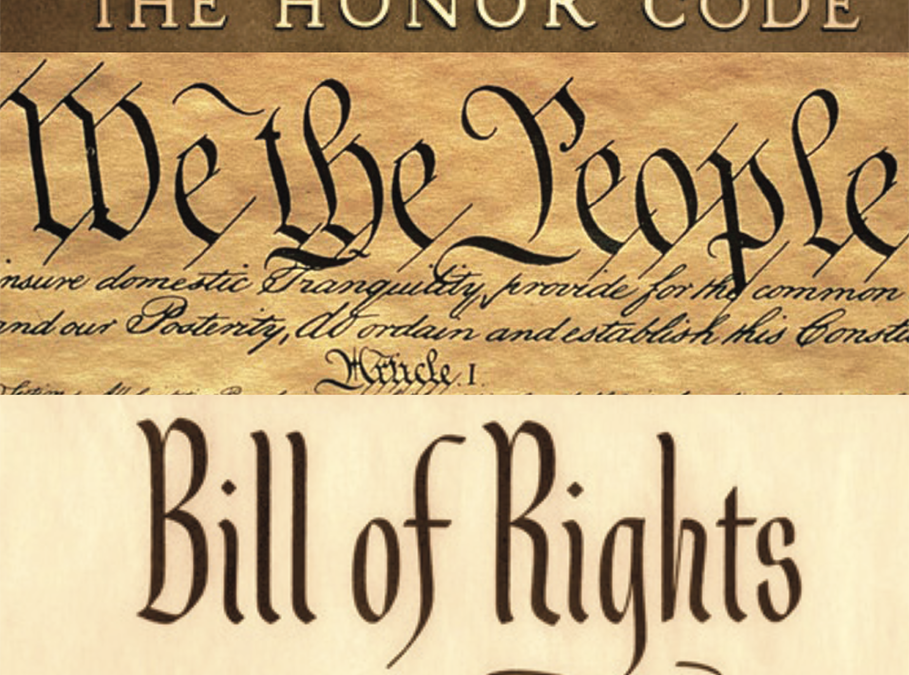
Oct 24, 2017 | School News
By Miro Bergam (V)
Mr. Conard closed off last week’s morning meeting with a speech addressing our country’s current national debates over the white supremacist rallies in Charlottesville and over NFL players kneeling during the national anthem. Mr. Conard began his speech by reciting passages from the Pingry Honor Code, the Bill of Rights, and the Preamble of the Declaration of Independence, stating that these are three texts that, as American citizens and Pingry students, are intended to guide us.
Mr. Conard then explained how today’s highly politicized society makes the discussion of such debates extremely difficult. As an educator, he said, “I am certainly entitled to my own political views; [however] I feel an obligation not to share them with you.” In the high-tension politics of today, this position becomes even more challenging, as any statement or lack of statement “is perceived as political or unpatriotic.”
Regardless, he finds the discussion of these political debates to be important. In order to conduct them productively at Pingry, he believes “we need to work hard to separate them from partisan politics.” He suggested that to achieve this we should listen to both sides, regardless of how ugly we may find the other side’s opinion. Mr. Conard said that although the white supremacists’ beliefs are “abhorrent to [him], and are both unacceptable and un-American,” he still believes “that they have a right to voice their opinions.”
This brought Mr. Conard to the topic of taking a knee during the national anthem. He maintained his stance on the freedom of expression and speech, saying, “If the flag is a symbol of our freedom, and is emblematic of the beliefs and rights articulated in the Declaration of Independence and the Constitution of the United States, then one of those rights is the freedom to kneel in front of the flag.”
Mr. Conard ended his speech by encouraging students to engage in these conversations productively and listening to each other through respectful dialogue. He invited students to continue this conversation in a series of Open Forums, spaces open to the whole school to have such discussions.
An Open Forum was held in the O’Connor Board Room later that day. Attendees split into groups to discuss different topics, including gun control and the recent shooting in Los Vegas, the UN decision to vote against banning the death penalty on the basis of sexual orientation, and kneeling during the national anthem at Pingry sporting events. Vicky Chen (V), who attended the Open Forum, said, “I talked about kneeling during the national anthem at Pingry sports games, and it was nice to have a conversation as sensitive as that with such a large group of teachers and peers.”
Regarding Mr. Conard’s speech and the Open Forum, Nabeel Jan (V) said, “I think they were a great way to start a dialogue on free speech. I think by having conversations we can only go forward together and not into a state of polar arguments, something that we should apply to other issues in our currently divisive political climate.”
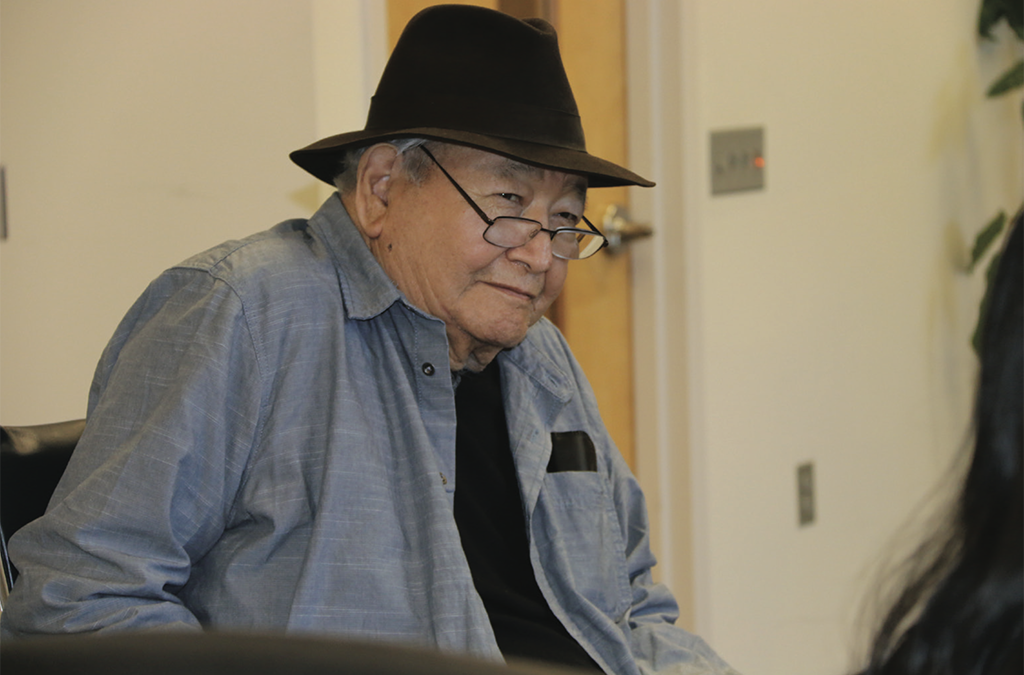
Oct 24, 2017 | School News
By Paige Maultsby (V)
Novelist, poet, and artist, Dr. N. Scott Momaday, visited Pingry on Thursday, October 5, for an assembly, a luncheon, and two creative writing workshops open to both Middle and Upper Schoolers. A Pulitzer Prize winning author and member of the Kiowa tribe, Dr. Momaday, was invited to the school, according to Assistant Headmaster Dinkins, “to animate the 2017-2018 professional learning theme, Diversity & Inclusion.”
The event was organized by Dr. Diana Artis, the Chair of the Diversity Department, with help from English Department Head, Chris Taylor, who coordinated student preparation for the event in English classes.
D r. Momaday spent the day sharing his knowledge and engaging in a thoughtful dialogue with students and faculty. Faculty prepared for the event by reading his Pulitzer Prize winning novel, House Made of Dawn. Guided by their teachers, students read selections of the novel and assorted poems in their English classes.
Though Dr. Momaday won the Pulitzer Prize for his 1968 novel, he considers himself to be a poet first and foremost. As for what draws him to poetry, he points toward its purity. “I think poetry is the best way to express yourself in literary terms,” Dr. Momaday told students during his workshop. “To write a poem is to say something in the best way that it can be said.” However, Dr. Momaday does not confine his writing to only poetry and novels; his past work ranges from plays to travel literature.
When it comes to influence, Dr. Momaday credits his parents with shaping him into the person he is today. He initially followed in the footsteps of his mother, who was a skilled writer, but later in life, he developed a passion for painting that his father had shared.
Also featured in his work is the influence of oral tradition. As a Kiowa tribe member, he grew up among countless stories, but they existed solely by word of mouth. “My father would tell me stories when I was a little boy,” Dr. Momaday said of his personal experience with the oral tradition. “They stuck in my mind, and I loved them so much I made him tell them to me again and again… One day I woke up to the realization that they were very fragile, that if I didn’t pass them on, they would be lost forever. So I started writing them down.” Out of this process came his best-seller, The Way to Rainy Mountain, a collection of Kiowa folktales supplemented with his commentary.
During the creative writing workshops, students had the chance to take their questions to Dr. Momaday, a true master of the craft. When asked to share what he has learned from being a writer, he responded, “How to be humble. Humility has a good amount to do with writing.” To the aspiring writers in the room, he advised, “If you can be humble about yourself and your experience and convey that humility to language, that’s quite an accomplishment. It’s worth doing.”
His words were not lost on the students. “I am so grateful that we were able not only to host him, but also to have personal discussions with him in the writing workshop,” said Grace Brown (V). “Not only did he give advice as an author which I can apply to my writing, but he also spoke on a deeper level to his thoughts about the human experience.” Though Dr. Momaday’s visit lasted no longer than a day — and ended with an evening event for parents at Short Hills — his stories and insights continue to resonate for many in our community.
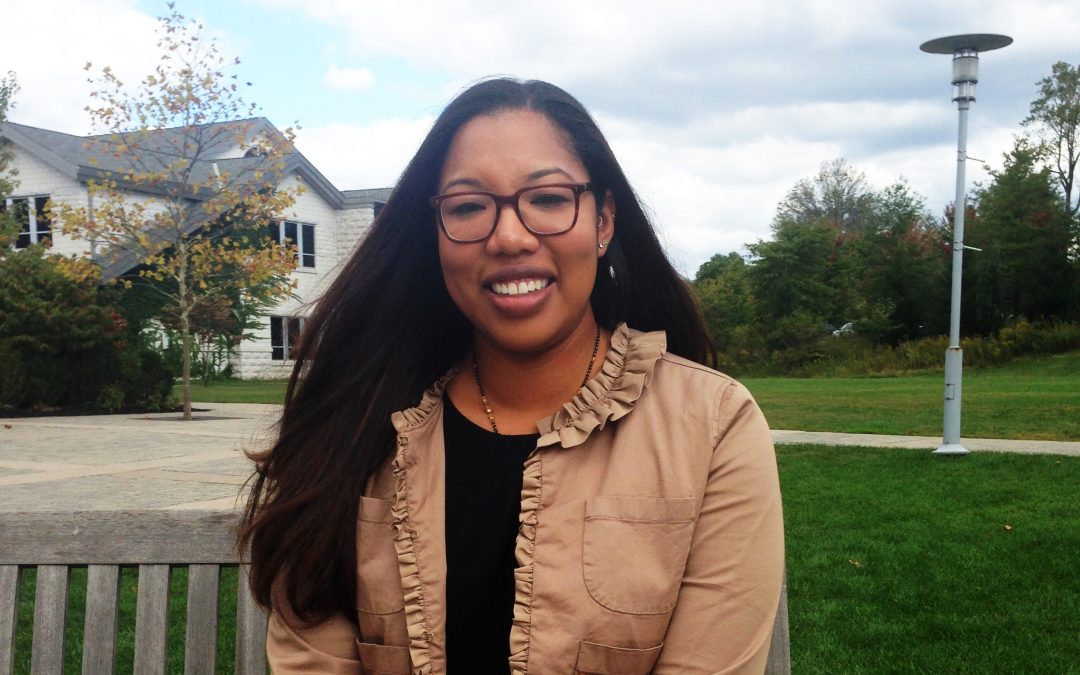
Oct 24, 2017 | School News
By Ketaki Tavan (V)
This year, Ms. Carol Mahida, who taught English in the Middle School last year, has taken on a new position in the Pingry community. In addition to teaching two sections of Form III English, She is now the Form III and IV Dean of Student Life in the Upper School.
Historically, Mr. Jake Ross has been the Dean of Student Life for Forms III-VI, but this year, the position has been split. “The younger and older groups have different needs,” said Ms. Mahida.
Ms. Mahida attended the University of South Carolina for her undergraduate degree, where she majored in English and minored in History. For graduate school, she attended Columbia University’s Teachers College and received a master’s degree in English Education. When asked about her college experience, Ms. Mahida said she “appreciated the freedom to explore who I was and what I wanted to do.”
While Ms. Mahida loved her college experience, she found her high school years to be even more formative than her college years. “I was an average student at a really large public high school, and in an environment like that, it’s easy to get lost in the shuffle. It wasn’t until I had two teachers that really saw me that I was able to learn what I was capable of,” Ms. Mahida said.
Because of her own high school experience, she commented, “what I love about working in a school environment is helping kids not fall through the cracks. I want to make sure that everyone has the opportunity to do what they want and to see what they’re capable of.”
When asked about her transition from the Pingry Middle to Upper School, Ms. Mahida said, “The Upper School is different from the Middle School in that students have reached a different maturity and skill level. Rather than teaching maturity and those skills, now I get to tap into the traits they have already developed and go deeper in conversation with students.”
Ms. Mahida was also drawn to the Upper School because of its significant female leadership. “It’s really exciting to see,” she said. “I have so many female role models that are incredible to watch and learn from.”
This year, Ms. Mahida thinks her biggest obstacle will be switching roles from teaching to being an administrator. “As a teacher, you’re guided by your classes, but as an administrator, you have to create your own schedule,” she said. “You have the time to plan and dream and help make goals for the school… it’s like being back in the learning stage, which is really humbling and exciting at the same time.”
When asked what she would like the school community to know, Ms. Mahida said, “Please introduce yourselves to me! I would to love learn more about everyone, and I’m always someone who will listen.”
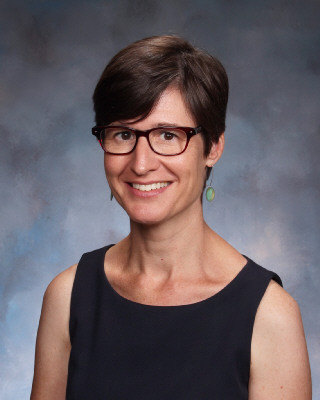
Oct 24, 2017 | School News
By Miro Bergam ’19
This year, Dr. Reid Cottingham will be stepping into a new role in the Pingry community. Formerly teaching English full time, she now assumes the mantle of the Upper School Academic Dean. Dr. Cottingham will also continue her work with the English department, teaching two sections of World Literature in the fall and two sections of Magical Realism in the spring.
As the Upper School Academic Dean, Dr. Cottingham will “serve as a liaison between students, parents, teachers, department chairs, the Coordinator of Academic Support, and the Upper School Director to help students navigate their way through high school academics.” She will be helping with course selection by aiding students in choosing courses that both challenge and interest them.
Dr. Cottingham will also monitor students’ progress, being in contact with parents and teachers when academic concerns arise. Other responsibilities she will be tasked with as Academic Dean include helping out with the advisory program, providing guidance to new faculty on academic policy and procedure, and stepping up as a leader in the seniors’ ISP program.
This will not be Dr. Cottingham’s first foray into the world of administration. When asked about her experience, she said, “I taught and served as an administrator at an all-girls school in Los Angeles. At Marlborough School, I was the English department chair for two years and a form dean. I was also an English teacher, obviously.” In addition to her work experience, Dr. Cottingham graduated with a B.A. in English Literature from Harvard University and a PhD in English Literature from the University of Chicago.
In her words, Dr. Cottingham is most excited “to get to know students as whole people. In the past, I only got to know my students as English scholars, but now I get to see the big picture.” She continued, “I get to see students as researchers, historians, athletes, artists, community servants, and children to the parents I’ll be working with.”
Her biggest obstacle, she figures, will be working with a much larger pool of kids. “Although getting to know so many students from so many different angles is amazing, I’ll need to come to terms with not getting to know each student as deeply as I would in a classroom setting, something I enjoy a lot as an English teacher.”
All things considered, Dr. Cottingham is very excited for her new position. Between the joys of teaching she’s experienced so far and the new challenges she will take on as an administrator, Dr. Cottingham is ready to see where her new role in the community takes her.







